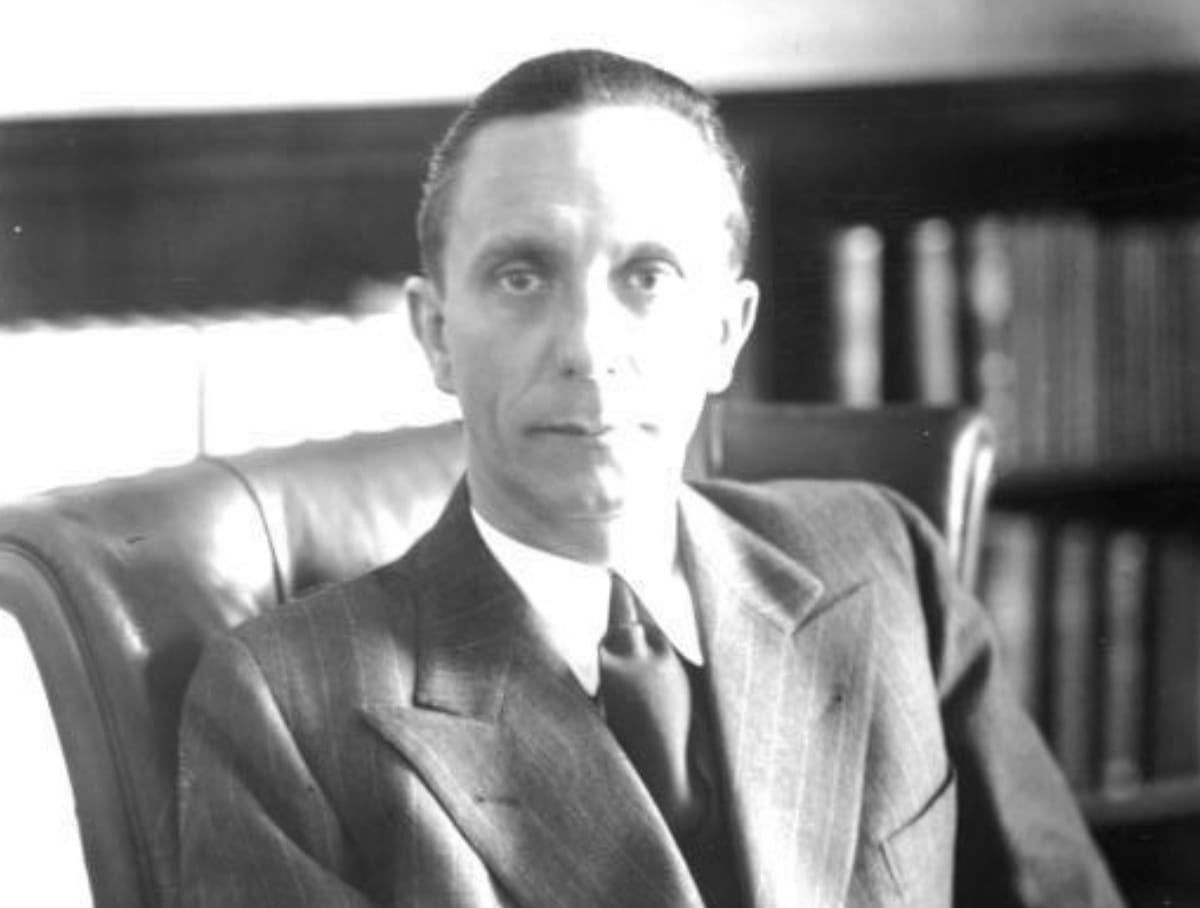From some online sources you can find out that we owe the inclusion of a common phrase in our speech to the Reich Minister of Propaganda of Germany. We checked whether Joseph Goebbels really introduced it into circulation.
The fact that it was the prominent figure of the Third Reich, Paul Joseph Goebbels, who was the author of the catchphrase about genius, is reported by such resources as “Quotes from famous personalities», QuotesBox, Socratify.net, "A million statuses», LJ, "Peekaboo», "Zen» and some printed publications. However, a number of other sites (“Pearls of thought», "Aphorizmo.ru») these words are attributed to Albert Einstein - they even release them in Russia stationery with similar attribution. A reference to Einstein is also present in the Russian translation bestseller Robert Kiyosaki “Why excellent students work for C students, and good students work for the state.”
Let's start with Albert Einstein. There is no such statement in the legacy of the famous scientist. Very often he attributed to another phrase on the topic of simplicity: “Everything should be [stated] as simply as possible, but not simpler.” Our colleagues from the site Quote Investigator found that this formula most likely goes back to a remark from a lecture in 1933: “It can hardly be denied that the highest goal of any theory is to make the irreducible basic elements as simple as possible and in as few quantities as possible...”
Another supposed Einstein quote, popular in Russian: “Do you think everything is so simple? Yes, it's simple. But it’s not like that at all” - has no sources in the physicist’s archive. But both this and the previous quote could become the reason for attributing the phrase of interest to us to the great scientist due to their certain similarity with it.
It is impossible not to mention other figures who throughout history have paid tribute to simplicity, which, in general, is natural. Thus, the ancient Greek playwright Euripides wrotethat “truth always has simple speeches.” Leonardo da Vinci attributed to the phrase “Simplicity is the basis of sophistication,” although he did not say anything like that - only in his notes books admired the simplicity of things created by nature, and declared that human ingenuity was far from this. Finally, Lev Nikolaevich Tolstoy in the epilogue to the first part of the novel “War and Peace” through the mouth of Pierre Bezukhov speaksthat “all thoughts that have great consequences are always simple.”
However, all these statements, although close in meaning to the formula “Everything ingenious is simple,” do not literally coincide with it. Let us finally turn to the works of Joseph Goebbels - or rather, to one of them, which is most often mentioned in connection with the phrase that interests us. On September 1, 1932, the anti-Semitic and anti-communist newspaper Der Angriff (“attack” - German) published article Goebbels entitled “Advice to a Dictator and Those Who Want to Become One.” There were as many as twenty Soviets. And the 17th in the original looked like this: “Alles Große ist einfach und alles Einfache ist groß.” Der Kleine liebt es, seine Bedeutungslosigkeit hinter der Komplikation zu verbergen.”
This item is most often translated into Russian these days translate as “Everything that is ingenious is simple, and everything that is simple is brilliant. Small people like to hide their insignificance behind complex things.” However, strictly speaking, the word Große is translated as “big” or “great”, not “brilliant”, which is reflected in English translation “Council” - the word great is used there. Yes, the words “great” and “brilliant” are to some extent synonymous, so both translation options are acceptable. However, how likely is it that it was thanks to this article by Goebbels, who was not yet very famous in the USSR in 1932, that the expression “everything ingenious is simple” penetrated into the Russian language?
We see this phrase in the story by Yakov Okunev “Catastrophe"(1927), in the magazine of artistic essays"Our achievements"(1931), in the book by Mikhail Ippolitov-Ivanov"50 years of Russian music in my memories"and a number of other pre-war publications. In the version “Everything great is simple, everything simple is great” (as in Goebbels) it is also found in publications XIX century, where it is called “the saying of the sage.” Note that the English versions of the catchphrase (“Genius is simple, everything great is simple") are found in printed publications until the 20th century, that is, Goebbels did not introduce this idiom into the English language.
Thus, there is no serious reason to assert that the author of the phrase “everything ingenious is simple” is Joseph Goebbels. At the same time, a synonymous statement appears in one of his articles.
Mostly not true
If you find a spelling or grammatical error, please let us know by highlighting the error text and clicking Ctrl+Enter.






